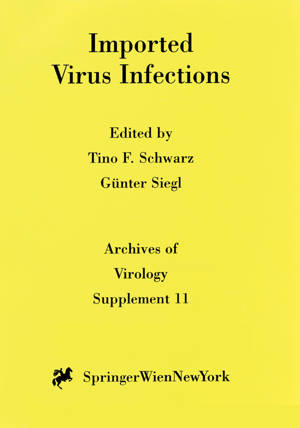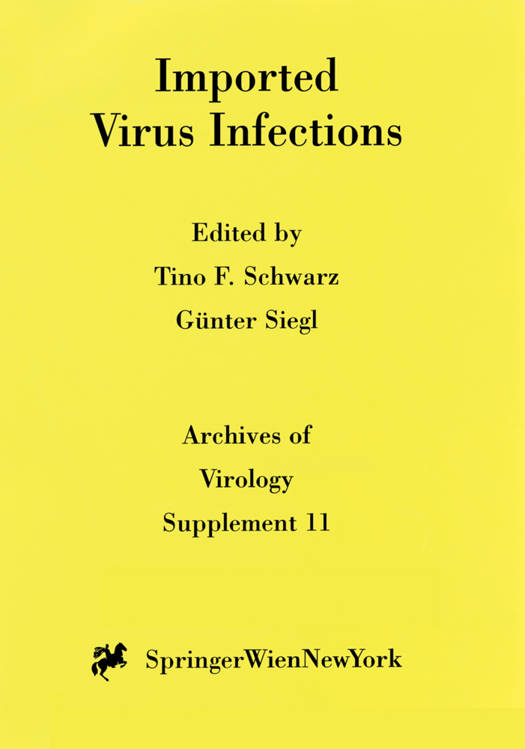
- Afhalen na 1 uur in een winkel met voorraad
- Gratis thuislevering in België vanaf € 30
- Ruim aanbod met 7 miljoen producten
- Afhalen na 1 uur in een winkel met voorraad
- Gratis thuislevering in België vanaf € 30
- Ruim aanbod met 7 miljoen producten
Zoeken
Omschrijving
Mobility oflarge parts of the human population, whether related to commercial necessity, touristic activities or to migration induced by war and social pressure, carried and carries the risk of spreading infections. Modem air travel effectively circumvents existing quarantine regulations as infected individuals thereby can reach almost every geographic location while stiIl in the incubation phase of the disease. Hence, infections previously restricted to distinet regions due to their strict association with non-human reservoirs or vectors can suddenly surface in non-endemic areas where lacking experience and technical means make clinical and laboratory diagnosis difficult. Excellent examples for such situations are many vector- or rodent-borne viruses but also hepatitis viruses, the human immunodeficiency virus and, last but not least, filoviruses. The following articles are based on papers presented at an international symposium on "Imported Virus Infections" heI d at the Max von Pettenkofer Institute, University ofMunich, Munich, Germany on March 31 to Aprill, 1995. They illustrate today's knowledge on the epidemiology, dynamics of spread, as weIl as the frequently limited possibilities of prevention and therapeutic treat- ment of associated disease. Special emphasis was placed on filovirus infections which, as if to highlight the topics of the symposium, reappeared and spread in Zaire in the first half of 1995. The symposium was dedicated to the memory of Friedrich Deinhardt M.D., virologist, professor and director of the Max von Pettenkofer Institute for Hygiene and Medical Microbiology from 1977 unt il he died on April 30, 1992.
Specificaties
Betrokkenen
- Auteur(s):
- Uitgeverij:
Inhoud
- Aantal bladzijden:
- 204
- Taal:
- Engels
- Reeks:
- Reeksnummer:
- nr. 11
Eigenschappen
- Productcode (EAN):
- 9783211828298
- Verschijningsdatum:
- 22/07/1996
- Uitvoering:
- Hardcover
- Formaat:
- Ongenaaid / garenloos gebonden
- Afmetingen:
- 210 mm x 279 mm
- Gewicht:
- 494 g

Alleen bij Standaard Boekhandel
+ 105 punten op je klantenkaart van Standaard Boekhandel
Beoordelingen
We publiceren alleen reviews die voldoen aan de voorwaarden voor reviews. Bekijk onze voorwaarden voor reviews.











